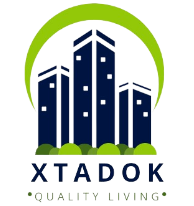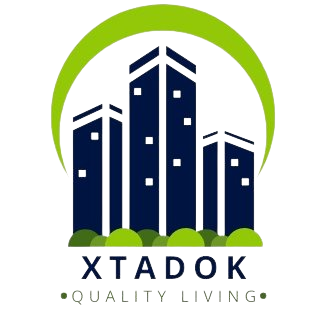Nigeria, often referred to as the “Giant of Africa,” has experienced remarkable economic growth in recent years, leading to a surge in property development across the nation. As urbanization accelerates and the demand for modern living spaces rises, the real estate landscape in Nigeria is undergoing a transformative boom. In this blog post, we will delve into the factors driving the growth of property development in Nigeria, the challenges it faces, and the opportunities it presents for investors and local communities alike.
Urbanization and Population Growth
Nigeria’s population, estimated at over 200 million, is one of the largest in Africa and is projected to continue growing in the coming decades. With a significant portion of the population living in urban areas, there is an escalating demand for residential and commercial properties. Rapid urbanization has led to a pressing need for modern infrastructure and housing solutions, creating an ideal environment for property developers to thrive.
Economic Growth and Investment Opportunities
Nigeria’s economy has experienced substantial growth in various sectors, including oil and gas, agriculture, and telecommunications. As the economy expands, so does the purchasing power of the Nigerian middle class. This increase in disposable income has fueled the demand for better housing options, leading to a surge in property development projects across major cities like Lagos, Abuja, and Port Harcourt. Moreover, the Nigerian government’s efforts to attract foreign direct investment have also played a vital role in boosting the real estate sector.
Housing Deficit and Affordable Housing Initiatives
Despite the boom in property development, Nigeria still faces a significant housing deficit. Millions of Nigerians lack access to adequate and affordable housing, especially in urban areas. Property developers are now focusing on addressing this critical issue by creating affordable housing initiatives and government-backed projects aimed at providing decent housing to low and middle-income earners. Bridging the housing deficit not only benefits the citizens but also presents an attractive market for developers.
Rise of Smart Cities and Sustainable Development
As property development expands in Nigeria, there is a growing emphasis on smart city concepts and sustainable building practices. Developers are increasingly incorporating green technologies, energy-efficient designs, and environmentally friendly materials into their projects. This shift towards sustainability not only reduces the environmental impact but also enhances the overall quality of life for residents, making these properties more desirable in the market.
Infrastructure Development and Real Estate Growth
Investments in infrastructure projects such as roads, bridges, and public transportation play a pivotal role in driving property development. Improved infrastructure enhances accessibility to various locations and boosts property values in those areas. This has led to the emergence of new real estate hotspots and created fresh opportunities for developers to capitalize on.
Challenges and the Way Forward
Despite the promising growth, property development in Nigeria is not without its challenges. Some of the key obstacles include issues related to land tenure, complex regulations, access to finance, and the need for improved transparency in the real estate market. However, the Nigerian government, in collaboration with private stakeholders, is actively working to address these challenges and create a more conducive environment for property development.
Conclusion
The growth of property development in Nigeria is a testament to the nation’s economic progress and the increasing demand for modern living and working spaces. With a burgeoning population, rising urbanization, and supportive government policies, the real estate sector is poised for further expansion and investment. As developers continue to embrace sustainability and affordable housing initiatives, they have an opportunity to shape Nigeria’s urban landscape positively.
The property development boom not only brings prosperity to the real estate industry but also has far-reaching effects on economic development, job creation, and improved living standards for Nigerians. As the country progresses on its path to becoming a leading African economy, the growth of property development remains a key indicator of its potential and promise for the future.




